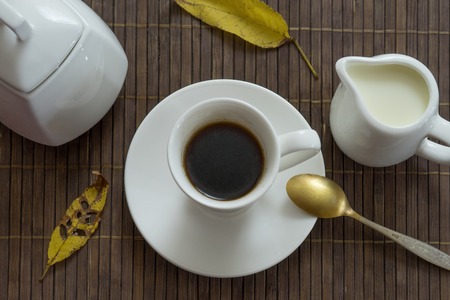1. Understanding Intermittent Fasting in the American Context
Intermittent fasting (IF) has become one of the most talked-about wellness trends in the United States. From Silicon Valley tech workers to busy parents and fitness enthusiasts, more Americans are turning to IF as a way to manage weight, boost energy, and improve metabolic health. But what exactly is intermittent fasting, and how does it connect with our daily coffee habits?
Popular Fasting Methods in the U.S.
While there are many variations of intermittent fasting, two of the most common methods gaining traction across the U.S. are the 16:8 method and OMAD (One Meal A Day). Heres a quick look at how they differ:
| Fasting Method | Fasting Window | Eating Window | Description |
|---|---|---|---|
| 16:8 | 16 hours | 8 hours | You fast for 16 hours and eat during an 8-hour window. Most people skip breakfast and eat lunch and dinner. |
| OMAD | 23 hours | 1 hour | You eat one large meal within a one-hour window and fast the rest of the day. |
The Role of Coffee in American Fasting Culture
Coffee holds a special place in American culture. Its not just a beverage—its part of morning rituals, workplace routines, and social gatherings. For those practicing intermittent fasting, black coffee often becomes a go-to drink during fasting windows because it’s low in calories and helps suppress appetite.
Why Black Coffee?
Black coffee is especially popular among fasters because it contains virtually no calories or sugars, which means it typically won’t break a fast. Plus, caffeine can increase alertness and may even enhance fat-burning during fasting periods.
Coffee & Fasting: A Natural Fit?
The rise of intermittent fasting has only deepened Americas love for coffee. Many fasters rely on their morning cup of black coffee to kickstart their day without disrupting their fasting schedule. But is black coffee truly “fast-friendly”? That’s where science—and some myths—come into play, which we’ll explore further in upcoming sections.
2. What Constitutes a Clean Fast?
When people talk about fasting, especially in the health and wellness communities across the U.S., they often refer to whats called a “clean fast.” But what does that really mean? A clean fast generally means consuming only substances that dont trigger an insulin response or digestive activity, which could break the metabolic state of fasting.
What Is Allowed During a Clean Fast?
According to many health experts and popular fasting protocols, here’s what’s typically allowed during a clean fast:
| Beverage | Fasting-Friendly? | Reason |
|---|---|---|
| Water (plain or mineral) | ✅ Yes | No calories, no insulin response |
| Black Coffee | ✅ Usually | Very low in calories; doesn’t spike insulin |
| Plain Tea (green, black, herbal) | ✅ Yes | No added sugars or calories |
| Coffee with cream/sugar | ❌ No | Adds calories; may break the fast |
| BCAAs or flavored water with sweeteners | ❌ Often No | Synthetic sweeteners may trigger insulin for some people |
The Role of Black Coffee in a Clean Fast
This is where things get interesting. Most fasting experts agree that black coffee is acceptable during a clean fast. It contains virtually zero calories—about 2 to 5 per cup—and doesn’t contain sugar, fat, or protein that would activate digestion. That means it generally won’t spike your blood sugar or cause an insulin response, which are key factors in staying in a fasted state.
The Science Behind It
Caffeine, the main active ingredient in coffee, can actually enhance some of the benefits of fasting. Studies suggest it may boost metabolism slightly and even increase autophagy—a natural process where your body cleans out damaged cells. However, everyone reacts differently. Some people may feel jittery or have stomach discomfort from drinking black coffee on an empty stomach.
Cultural Take: What Do American Fasting Communities Say?
If you browse American forums like Reddits r/intermittentfasting or listen to popular fasting podcasts, youll find a general consensus: black coffee is “clean fast-approved.” Influential voices like Dr. Jason Fung and Gin Stephens also support black coffee during fasting windows. That said, individual tolerance varies—some fasters prefer to skip it if they notice negative effects.
A Quick Recap: Is Black Coffee Clean-Fast Friendly?
| Coffee Type | Clean Fast Approved? |
|---|---|
| Black Coffee (no cream/sugar) | ✅ Yes |
| Coffee with Creamer/Milk/Sugar | ❌ No |
| Sugar-free Flavored Coffee Drinks | ⚠️ Maybe (depends on ingredients) |
The bottom line? If youre aiming for a clean fast and love your morning brew, plain black coffee is usually safe—and might even give your fast an extra edge.
![]()
3. The Science Behind Black Coffee and Fasting
When it comes to fasting, especially intermittent fasting, many people wonder if drinking black coffee breaks a fast or interferes with its health benefits. Let’s take a closer look at what science and experts say about how black coffee interacts with key aspects of fasting like autophagy, insulin levels, and metabolic health.
Does Black Coffee Affect Autophagy?
Autophagy is the body’s way of cleaning out damaged cells and regenerating new ones—one of the major benefits people aim for when fasting. Some studies suggest that black coffee might actually enhance autophagy rather than stop it. According to research published in the journal Cell Cycle, caffeine can stimulate autophagy in animal models. While more human-based studies are needed, current evidence points toward black coffee being compatible with this cellular process.
Insulin Response and Blood Sugar Levels
One of the main goals of fasting is to lower insulin levels and improve insulin sensitivity. The good news? Black coffee is very low in calories (usually under 5 per cup) and contains no sugar or carbs. Most research shows it has a minimal impact on blood sugar or insulin levels—especially when consumed without creamers or sweeteners.
Coffee’s Impact on Insulin: What Studies Say
| Study | Findings on Insulin |
|---|---|
| Harvard School of Public Health (2014) | Regular coffee consumption linked to lower risk of type 2 diabetes over time. |
| The American Journal of Clinical Nutrition (2008) | No significant spike in insulin after consuming black coffee. |
Caffeine and Metabolism
Caffeine, the main active ingredient in coffee, can slightly boost metabolism by increasing energy expenditure. This could be an added benefit during a fast, as it may help burn more fat. However, individual tolerance to caffeine varies—so if youre sensitive, it’s best not to overdo it.
Key Takeaways from Experts
- Registered dietitians: Most agree that plain black coffee won’t break a fast.
- Fasting experts: Say moderate consumption (1–2 cups) supports fasting goals.
- Medical researchers: Ongoing studies continue to explore long-term effects, but current data is promising.
Important Note:
If you add sugar, milk, or flavored creamers to your coffee, it likely will break your fast due to added calories and carbs. Stick with plain black coffee if you want to stay in a true fasted state.
Overall, based on current scientific evidence and expert opinions, black coffee appears to be not only safe during fasting but potentially beneficial when consumed in moderation.
4. Calories, Sweeteners, and Additives: The Fine Line
In American coffee culture, its common to jazz up a cup of black coffee with a splash of cream or a pump of flavored syrup. But when youre intermittent fasting, these small additions can make a big difference. While black coffee itself contains almost no calories and is generally safe during a fast, the moment you start adding extras, you risk breaking your fast.
Why Additives Matter During a Fast
Fasting is all about avoiding caloric intake that can trigger insulin responses or disrupt your metabolic state. Even tiny amounts of calories can affect this balance. Heres where it gets tricky—many popular coffee add-ins contain more than just flavor; they carry enough calories and nutrients to potentially interrupt the fasting process.
Common Coffee Additions and Their Impact
| Ingredient | Typical Serving Size | Calories | Fasting-Friendly? |
|---|---|---|---|
| Black Coffee (no additives) | 8 oz | 0-5 | ✅ Yes |
| Half-and-Half | 1 tbsp | 20 | ❌ No |
| Heavy Cream | 1 tbsp | 50 | ❌ No |
| Sugar (white or brown) | 1 tsp | 15-20 | ❌ No |
| Flavored Syrups (e.g., vanilla, caramel) | 1 pump (~1 tbsp) | 20-25 | ❌ No |
| Artificial Sweeteners (e.g., sucralose, aspartame) | 1 packet | 0-5* | ⚠️ Maybe* |
*While most artificial sweeteners are calorie-free, some studies suggest they may still trigger insulin responses in certain individuals. Its best to test how your body reacts.
The American Coffee Habit and Fasting Challenges
In the U.S., many people enjoy their morning brew with flavored creamers or sweetened syrups from brands like Starbucks or Dunkin’. These habits are deeply ingrained in daily routines but can unknowingly sabotage fasting efforts. Even non-dairy creamers marketed as “sugar-free” often include hidden carbs or small amounts of protein that break your fast.
If youre committed to fasting benefits—like fat-burning, improved insulin sensitivity, or mental clarity—its important to keep your coffee as plain as possible. Remember: black is best when youre trying to stay in the fasting zone.
5. Real-Life Impact: What Fasting Experts and Dietitians Say
When it comes to fasting, black coffee often sparks debate. While some people swear by it as a fasting-friendly drink, others worry it might break their fast. To better understand where black coffee fits into a fasting lifestyle, let’s take a look at what U.S.-based nutritionists, doctors, and fasting advocates have to say.
What the Experts Are Saying
Many health professionals in the U.S. agree that black coffee is generally considered acceptable during a fast. It contains almost no calories and doesn’t trigger insulin spikes for most people, which means it likely won’t interfere with the physiological benefits of fasting like fat burning or autophagy.
Voices from the Field
| Expert | Position on Black Coffee During Fasting |
|---|---|
| Dr. Jason Fung, Nephrologist & Fasting Expert | “Black coffee is fine while fasting. It can even help suppress appetite.” |
| Kelly LeVeque, Holistic Nutritionist | “As long as youre not adding sugar or cream, coffee can be a great tool during intermittent fasting.” |
| Dr. Rhonda Patrick, Biomedical Scientist | “Coffee has beneficial compounds like polyphenols and antioxidants that may enhance metabolic effects during a fast.” |
| Ted Naiman, MD, Family Medicine Doctor & Author | “I drink black coffee every morning during my fasts—it keeps me focused and energized.” |
Caffeine Considerations
Caffeine tolerance varies from person to person. Some dietitians caution that drinking too much black coffee could lead to jitters, increased heart rate, or disrupted sleep—especially if consumed later in the day. Moderation is key.
A Few Tips from Registered Dietitians:
- If you’re new to fasting: Start with one cup of black coffee in the morning to see how your body reacts.
- Avoid sweeteners: Even zero-calorie ones can trigger cravings or insulin responses in some individuals.
- Add cinnamon: For flavor without breaking your fast, sprinkle a little cinnamon instead of creamer or sugar.
The Bottom Line from Experts
The majority of U.S.-based health professionals view black coffee as a helpful—and safe—addition to a fasting routine. As long as it’s consumed plain, without added calories, black coffee wont break your fast and may even make the process more manageable by curbing hunger and boosting focus.
If youre unsure how your body responds, try it out and pay attention to how you feel. Like any part of your wellness journey, personalization is key.
6. Final Verdict: Should You Sip or Skip?
If youve been wondering whether black coffee is a friend or foe during your fasting window, youre not alone. Lets break it down so you can make the best choice for your health and lifestyle.
What We’ve Learned
Black coffee is generally considered fast-friendly because it contains almost no calories, doesnt spike insulin, and may even enhance some of fasting’s benefits like improved focus and fat oxidation. However, its effects can vary depending on individual tolerance and how its prepared.
Quick Comparison: Black Coffee & Fasting Compatibility
| Factor | Effect | Fast-Friendly? |
|---|---|---|
| Calories (per 8 oz) | ~2 calories | ✅ Yes |
| Sugar/Additives | If added, breaks fast | ❌ No (with sugar/cream) |
| Caffeine | Boosts alertness & metabolism | ✅ Yes (if tolerated) |
| Insulin Response | Minimal to none | ✅ Yes |
Tips for Enjoying Black Coffee During Fasting
- Keep it simple: Stick to plain black coffee—no cream, sugar, or flavored syrups.
- Brew matters: Choose high-quality beans and avoid over-roasting to reduce bitterness without needing sweeteners.
- Time it right: Have your coffee earlier in the day to avoid disrupting sleep patterns.
- Watch caffeine sensitivity: If you experience jitters or stomach issues, consider switching to decaf or limiting intake.
- Avoid bulletproof coffee: While popular in some circles, adding butter or MCT oil technically breaks a fast.
Tailoring It to Your American Lifestyle
If youre someone who grabs a morning brew from Starbucks on your commute or brews a pot at home before hitting the gym, black coffee can fit seamlessly into your fasting plan. Just skip the extras like cream and sugar. For those doing intermittent fasting with early eating windows (like 16:8), black coffee can help curb hunger until its time to eat.
The key takeaway? Black coffee is a safe bet during fasting—as long as you keep it clean and listen to your body. Whether youre chasing weight loss goals, mental clarity, or just trying to build healthier habits, this classic cup of joe might be just what you need to keep going strong.


